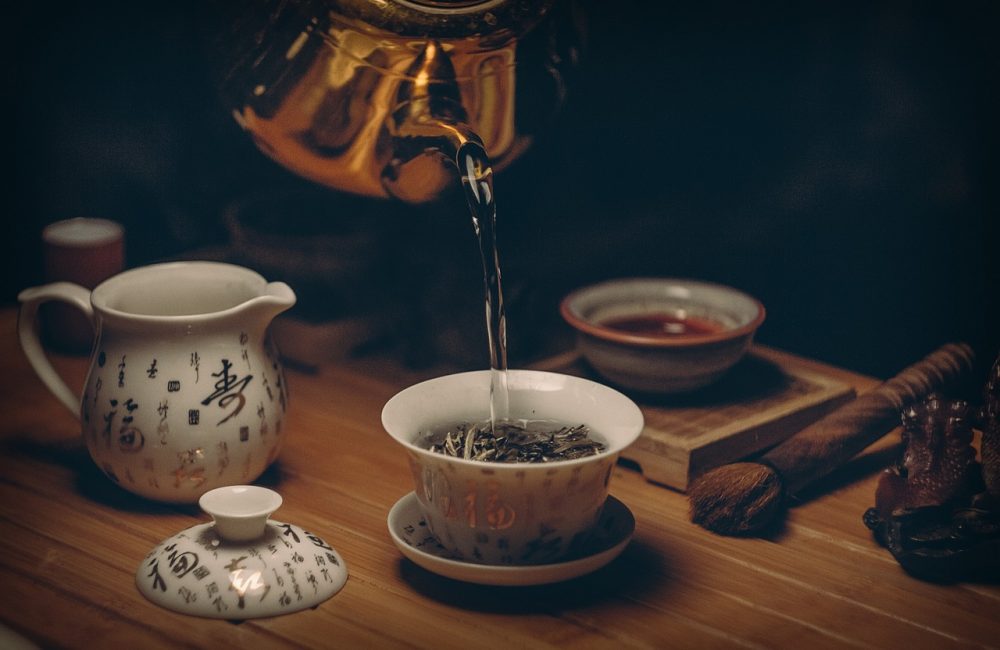When it comes to maintaining optimal dental health and oral hygiene, incorporating teas into your daily routine can be highly beneficial. Teas not only offer a range of health benefits for the body, but certain types of tea can also promote oral health by combating bacteria, reducing inflammation, and freshening breath. Let’s dive deeper into the fascinating world of teas and discover how each can play a role in enhancing your oral hygiene.
Understanding the Role of Antioxidants in Teas
Antioxidants are compounds that help fight free radicals in the body, and they play a crucial role in maintaining health, including oral health. Free radicals can cause oxidative stress, leading to inflammation and damage to cells, including those in your mouth. By incorporating antioxidant-rich teas into your diet, you can help protect your oral tissues and support overall dental wellbeing.
Green Tea: A Potent Antioxidant Powerhouse
Green tea is renowned for its high concentration of catechins, powerful antioxidants that can help combat bacteria in the mouth and reduce the risk of cavities and gum disease. Additionally, green tea has anti-inflammatory properties that can help soothe gum irritation and promote overall oral health. Its natural fluoride content can also contribute to strengthening tooth enamel, further protecting against decay.
Practical Tip: Try swapping your regular morning coffee with a cup of green tea to start your day with a boost of antioxidants. Not only will it benefit your oral health, but it’s also a refreshing way to wake up.
Additional Insight: Studies have shown that individuals who regularly consume green tea have a lower risk of developing periodontal disease. For instance, a study published in the Journal of Periodontology found that those who drank green tea regularly exhibited healthier gums compared to non-tea drinkers.
Peppermint Tea: Fresh Breath and More
Peppermint tea is a popular choice for freshening breath and promoting oral hygiene. The natural menthol in peppermint has antimicrobial properties that can help combat bad breath-causing bacteria in the mouth. Additionally, the refreshing taste of peppermint tea can leave your mouth feeling clean and revitalized. Peppermint tea’s ability to calm stomach discomfort can also indirectly benefit oral health by reducing acid reflux, which can erode tooth enamel.
Example: Imagine sipping on a warm cup of peppermint tea after a meal—it acts like a natural mouthwash, cleansing your palate and leaving a minty aftertaste.
Fun Fact: During ancient times, peppermint was used in many cultures as a natural toothpaste and mouth rinse due to its refreshing properties, showcasing a long history of oral health benefits.
Soothing Benefits of Herbal Teas
Herbal teas, while often caffeine-free, bring a different set of benefits to the table, particularly with their soothing properties.
Chamomile Tea: Calming Inflammation
Chamomile tea is known for its soothing properties, making it an excellent choice for individuals with gum inflammation or sensitivity. Chamomile tea can help reduce inflammation in the oral tissues and promote overall oral comfort. Its mild, floral flavor also makes it a pleasant option for daily consumption. The calming effects of chamomile tea can also assist in managing stress, which is beneficial for oral health as stress has been linked to dental issues like teeth grinding and canker sores.
Case Study: A study at a dental clinic observed patients who consumed chamomile tea daily reported less gum sensitivity and fewer occurrences of canker sores compared to those who did not.
Extended Advice: For individuals who suffer from nighttime teeth grinding, drinking chamomile tea before bed can help relax the muscles and reduce the tension that often leads to grinding.
Rooibos Tea: A Gentle, Enamel-Friendly Option
Rooibos tea, also known as red tea, is caffeine-free and rich in antioxidants such as quercetin and aspalathin. These antioxidants can help combat inflammation in the mouth and reduce the risk of periodontal disease. Rooibos tea’s naturally sweet and nutty flavor makes it a delightful alternative to traditional teas. The absence of oxalic acid in rooibos tea also means it is gentle on tooth enamel, making it a suitable choice for those with sensitive teeth.
Pro Tip: Enjoy rooibos tea as an evening drink—it won’t interfere with your sleep and is a comforting way to end the day while caring for your teeth.
Additional Benefit: Rooibos tea also contains calcium, which can further strengthen teeth and support bone health, making it a dual-purpose beverage for overall wellness.
Exploring the Impact of Traditional Teas
Traditional teas made from the Camellia sinensis plant, like black and oolong tea, have unique properties that support oral health.
Black Tea: Polyphenols for Oral Protection
Black tea contains polyphenols and tannins that have been shown to inhibit the growth of bacteria in the mouth, thereby reducing the risk of cavities and gum disease. The moderate caffeine content in black tea can also stimulate saliva production, which plays a crucial role in preventing dry mouth and maintaining oral health. The presence of fluoride in black tea can contribute to the remineralization of tooth enamel, further protecting against decay and strengthening teeth.
Real-Life Insight: A regular afternoon tea ritual, especially with black tea, not only refreshes the mind but also supports your oral hygiene by boosting saliva and providing essential fluoride.
Practical Advice: If you’re someone who enjoys a stronger tea flavor, black tea can be an excellent choice. Just ensure you’re not adding too much sugar or milk to maintain its oral health benefits.
Oolong Tea: The Middle Ground
Oolong tea falls between green and black tea in terms of oxidation and offers a unique blend of benefits. It contains a range of antioxidants that can help reduce oral bacteria and prevent plaque buildup. The fluoride in oolong tea also contributes to stronger enamel.
Example: Many people in Asian cultures enjoy oolong tea with meals to aid in digestion and promote oral health, as it helps cleanse the mouth of food particles.
Mistakes to Avoid When Consuming Tea for Oral Health
While teas offer numerous benefits, there are some common mistakes to avoid to ensure you get the most out of your tea for oral health.
- Adding Too Much Sugar: Sweetening your tea with excessive sugar can negate its benefits by increasing the risk of cavities. Try natural sweeteners like honey or enjoy the tea unsweetened.
- Oversteeping: Leaving tea to steep for too long can increase its acidity, which may harm your enamel. Follow recommended steeping times for optimal health benefits.
- Neglecting Dental Hygiene: While tea can support oral health, it should complement, not replace, regular brushing and flossing.
Extended List of Mistakes:
- Consuming Tea Immediately After Brushing: The acidity in tea can erode enamel if consumed right after brushing your teeth. Wait at least 30 minutes after brushing before drinking tea.
- Ignoring Staining Potential: Some teas can stain teeth over time. Make sure to rinse your mouth with water or brush your teeth after drinking darker teas to prevent discoloration.
- Using Low-Quality Tea Bags: Opt for high-quality loose leaf teas rather than low-grade tea bags, which may contain unwanted chemicals and lower antioxidant levels.
Step-by-Step Guide to Maximizing Tea Benefits
- Select Your Tea: Choose a variety that suits your taste and specific oral health needs, such as green tea for antioxidants or peppermint for fresh breath.
- Brew Correctly: Use fresh, filtered water and follow the proper steeping time for each type of tea to maximize flavor and health benefits.
- Enjoy Mindfully: Sip slowly and take time to appreciate the flavors. Rinse your mouth with water after drinking to help neutralize acids.
- Pair with a Healthy Diet: Complement your tea consumption with a diet rich in fruits, vegetables, and whole grains to enhance oral and overall health.
- Incorporate into a Routine: Make tea a part of your daily routine, whether it’s a morning ritual or an evening wind-down, to consistently reap its benefits.
Example Routine: Start your day with green tea for a morning antioxidant boost, enjoy peppermint tea post-lunch for fresh breath, and wind down with chamomile or rooibos tea before bed.
Expanding Your Tea Choices
While we’ve covered some popular teas, there are many more to explore:
- White Tea: Known for its delicate flavor and high antioxidant content, white tea can also support oral health. Its minimal processing preserves the most catechins, making it an excellent choice for dental protection.
- Hibiscus Tea: With a tart flavor, hibiscus tea is rich in vitamin C and antioxidants, offering additional health benefits. It can help fight inflammation and enhance immune function, indirectly supporting oral health.
- Ginger Tea: Known for its anti-inflammatory properties, ginger tea can soothe oral tissues and aid digestion. Its spicy flavor can also stimulate saliva production, promoting a healthy mouth.
Personal Insight: As someone who has integrated these teas into my daily life, I’ve noticed a significant improvement in my oral health and overall wellbeing. The variety not only keeps things interesting but ensures I’m getting a range of benefits.
Leveraging Tea in a Holistic Oral Care Routine
Teas should be part of a broader oral care strategy that includes:
- Regular Brushing and Flossing: Maintain a consistent routine of brushing at least twice a day and flossing daily to remove plaque and prevent cavities.
- Regular Dental Check-Ups: Visit your dentist regularly for cleanings and check-ups to catch any issues early and maintain optimal oral health.
- Healthy Lifestyle Habits: Incorporate a balanced diet, regular exercise, and stress management techniques to support overall health, including oral health.
Case Example: A friend of mine, who struggled with gum issues, found that by replacing sugary drinks with green tea and maintaining a diligent oral care routine, her gum health improved significantly.
By integrating these teas into your daily regimen, you can enhance your oral care routine and enjoy the numerous benefits they offer for your teeth and gums. Remember, the key to leveraging teas for oral health lies in choosing the right types, brewing them correctly, and incorporating them into a broader health regimen that includes regular dental check-ups and proper oral hygiene practices. With these strategies, you’re well on your way to a healthier, brighter smile.






